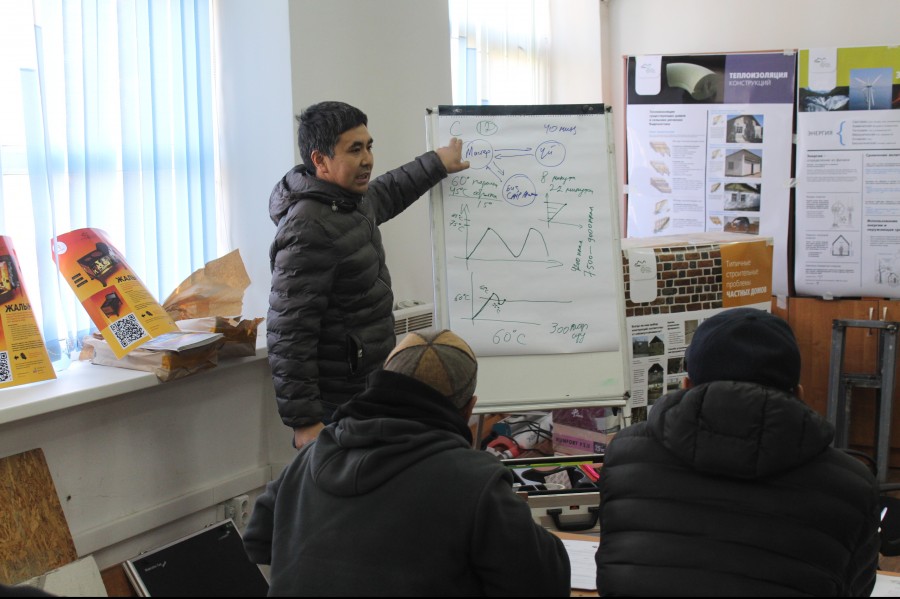
The project was designed to address this challenge by supplying the market with skilled professionals in energy-efficient technologies. These experts underwent training in marketing and business dealings. The project's vision was for local professionals to offer home insulation services, facilitated by interest-free installment loans extended to consumers with below-average incomes, thereby enabling them to afford the services. The repaid funds were then reinvested in providing services to subsequent clients.
In essence, the project was able to kill two birds with one stone: not only did it enrich and diversify the energy services market, but it also elevated the living conditions of rural populations. Simultaneously, it empowered the masters involved in the project, expanding both their business and client base.
Local masters were selected in Naryn and Issyk-Kul Oblasts. The conditions for their participation in the project were legally registered entrepreneurial activity, production capacity to carry out quality thermal insulation works in a short time, initial skills of interaction with clients, and fulfilment of the project obligations. Two trainings were conducted for masters in Issyk-Kul and Naryn Oblasts, during which more than 30 participants were trained in practical skills of thermal insulation, installation of energy efficient Jalyn stoves and boilers, as well as the subtle details of marketing and communication.
Four masters in the Chui and Issyk-Kul regions received interest-free loans from the revolving fund created as part of the project. With these funds, they purchased materials for insulating the homes of their fellow villagers. According to the agreement between the craftsmen and their clients, the latter paid for the expenses and work performed in installments not exceeding 24 months. The responsibility for loan repayment was the obligation of the craftsmen, failure to fulfill which threatened the termination of cooperation. Upon completion of the project, the loan repayment rate reached 100%.
In total, 16 households were insulated in the Chui and Naryn regions. Before starting work, the craftsmen, together with the homeowners, identified sources of heat loss, selected the necessary materials, and calculated the cost estimates. Taking into account the needs and financial capabilities of the owners, they proposed starting with the insulation of specific structures or parts of the living spaces, gradually bringing the entire house up to standard if necessary.
In each insulated household, constant temperature control sensors were installed. Measurements were taken before and after insulation. According to comfort standards, the indoor temperature ranges from 18 to 23 degrees Celsius. To analyze the impact of insulation on heat loss and material selection, specialists took monthly readings from the sensors. Based on the results, further recommendations for craftsmen on insulation procedures were developed.
During the monitoring, specialists found that insulation resulted in an average fuel consumption reduction from four tons to two and a half tons per household, consequently lowering CO2 emissions.
As part of the project, an online resource on insulation was launched (QR code to the website: https://eep.camp.kg/). The website hosts a calculator for estimating expenses required for home insulation. Upon filling in all the fields, the online tool provides information about suitable insulation material, its dimensions, and cost considering the region of residence. Importantly, it calculates current CO2 emissions and emission levels after insulation, as well as estimates savings on energy resources post-insulation.